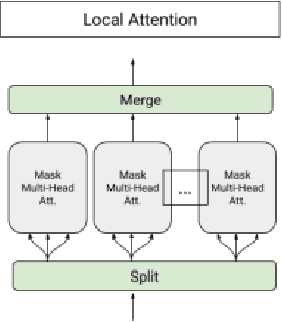Georgy Tyukin
Attention Is All You Need But You Don't Need All Of It For Inference of Large Language Models
Jul 22, 2024



Abstract:The inference demand for LLMs has skyrocketed in recent months, and serving models with low latencies remains challenging due to the quadratic input length complexity of the attention layers. In this work, we investigate the effect of dropping MLP and attention layers at inference time on the performance of Llama-v2 models. We find that dropping dreeper attention layers only marginally decreases performance but leads to the best speedups alongside dropping entire layers. For example, removing 33\% of attention layers in a 13B Llama2 model results in a 1.8\% drop in average performance over the OpenLLM benchmark. We also observe that skipping layers except the latter layers reduces performances for more layers skipped, except for skipping the attention layers.
Enhancing Inference Efficiency of Large Language Models: Investigating Optimization Strategies and Architectural Innovations
Apr 02, 2024



Abstract:Large Language Models are growing in size, and we expect them to continue to do so, as larger models train quicker. However, this increase in size will severely impact inference costs. Therefore model compression is important, to retain the performance of larger models, but with a reduced cost of running them. In this thesis we explore the methods of model compression, and we empirically demonstrate that the simple method of skipping latter attention sublayers in Transformer LLMs is an effective method of model compression, as these layers prove to be redundant, whilst also being incredibly computationally expensive. We observed a 21% speed increase in one-token generation for Llama 2 7B, whilst surprisingly and unexpectedly improving performance over several common benchmarks.
 Add to Chrome
Add to Chrome Add to Firefox
Add to Firefox Add to Edge
Add to Edge